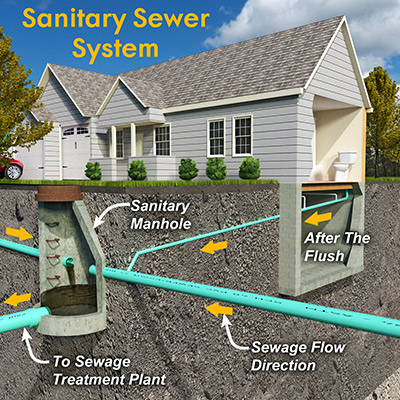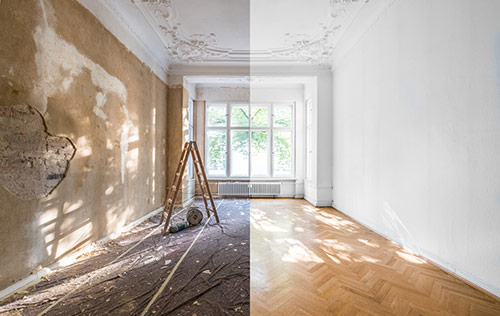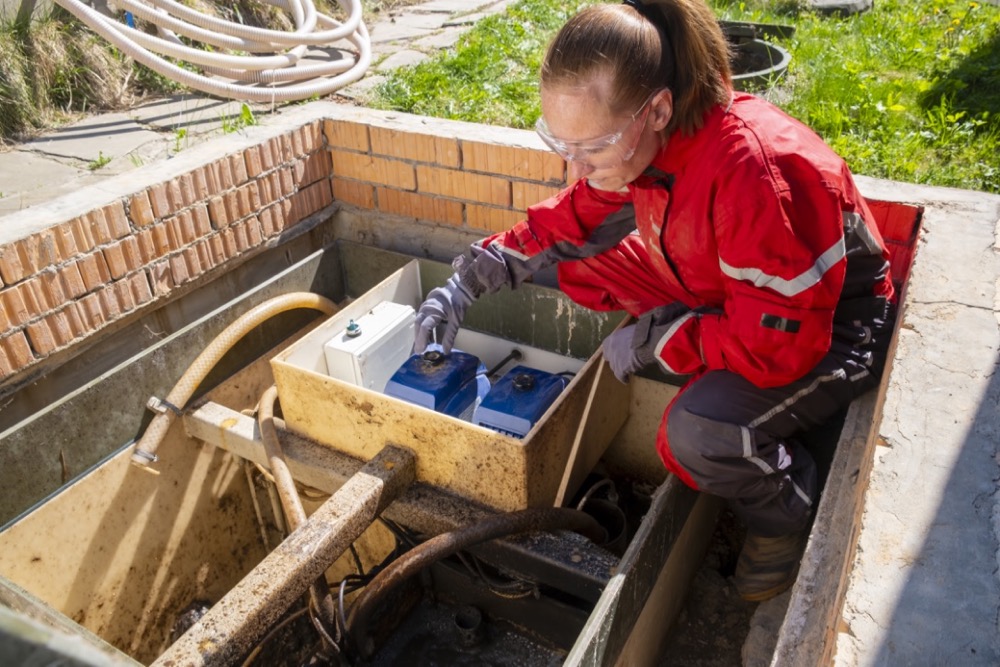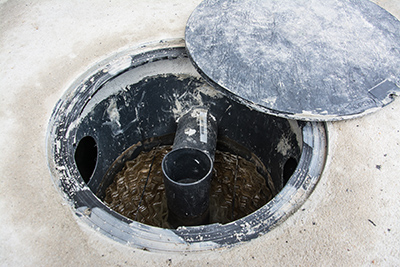
The fact is most people have no idea that they have choices. Your environment where the system will go has a big influence on which septic systems will work better. The problems could range from filling up too quickly to poor drainage to equipment breaking. Almost all of those results mean significant costs for repair and cleanup.
The Two Big Categories of Septic Systems
Almost all septic systems fall in one of two groupings. The first is conventional and the second is, almost predictably, alternative. However, if you thought the choice was easy enough to pick one or the other, surprise. The alternative category alone includes 20 different system models that one can pick from.
The Conventional Septic System Model
This category tends to be what most people are familiar with. The conventional model involves a large tank buried in the ground near the home or building that it will service. Using gravity, the wastewater that comes from the home drains into the tank.
The water line in and out continues to drain liquid out from the tank to the ground which is known as the drain field. Solid mass carried by the wastewater from the home flows into the tank and, with gravity, falls to the bottom while the water itself continues forward to draining. Eventually, due to bacteria, the solid material breaks down in the tank and settles at the bottom.
The big issue with a conventional system is the surrounding soil. The dirt and soil need to be permeable enough that as water flow reaches the tank and then the drain field, it flows into the soil and eventually evaporates upwards into the air as the ground dries out. This is enhanced by a series of pipes from the drain tank into the drain field that allows the water to move forward and farther out into the field instead of saturating the immediate exit point.
The second concern with the conventional system involves the tank. Over time, even with bacteria and break-down, the solid matter will build up inside the tank. This process will take years, but it does occur. If the tank is not pumped regularly the material will eventually block up the flow and the new wastewater will back up into the house or building. Without maintenance, most owners find out about this problem the hard way during the rainy season or a big blockage event.
The conventional septic system design has been a proven approach for decades. Taken care of properly, these standard systems will last anywhere from 25 to 30 years before a full replacement is needed. They are made from usually three different materials: concrete, fiberglass, or polyethylene.
Alternative Septic System Types
Designed to deal with situations where a septic tank is a must but the surrounding soil doesn’t want to cooperate with easy draining, alternative systems use internal methods to help water separately and dissipate from the system faster instead of leaching out in a drain field.
Poor draining situations can occur from a variety of causes. Some are a result of too much rock and impermeable material in the immediate area, making it far too expensive to drill out the lock or break it down to solve the problem.
This happens a lot where a septic system is needed and it turns out just below the surface soil there’s a rock layer, like granite. In other cases, the local water table is simply too high so the wastewater can’t drain out properly with gravity. Swampy areas are notorious for this kind of situation. Fortunately, alternative systems still allow water to be removed and let solid matter escape from the home or building with drainage.
Next week we'll discuss options in alternative systems.



